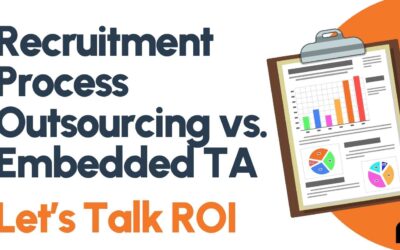Diversity, Equality, and Inclusion: Catalysts for Organisational Excellence
In today’s interconnected world, diversity, equality, and inclusion (DEI) have progressed from buzzwords to pivotal factors shaping the triumph and advancement of organisations. This article explores the significance of DEI initiatives, their influence on workplaces, and the steps organisations can take to cultivate a culture of diversity and inclusivity.
Understanding Diversity, Equality, and Inclusion:
Diversity encompasses the array of characteristics that render individuals distinct, including race, ethnicity, gender, age, sexual orientation, religion, and disabilities. Equality concentrates on establishing just and impartial systems that grant equal access and opportunities to all individuals, regardless of their backgrounds. Inclusion surpasses diversity, guaranteeing that diverse voices are not only present but also esteemed, respected, and empowered within an organisation.
The Business Rationale for DEI:
Advocating DEI is not merely a moral obligation; it is also an astute business decision. Organisations that give priority to diversity and inclusion experience an extensive array of benefits. Varied teams contribute diverse viewpoints, fostering inventive solutions and heightened creativity. Inclusive workplaces foster employee engagement and retention, diminishing turnover and associated expenses. Furthermore, companies with robust DEI practices often attract a broader clientele, enhancing their market reach and competitive edge.
Impact on Workplace Culture:
DEI initiatives foster a workplace culture that esteems individual differences and nurtures a sense of belonging for all staff members. When employees feel valued and included, they are more likely to offer their best work, collaborate efficiently, and remain dedicated to the organisation’s mission. In such settings, employees are motivated to express their true selves at work, culminating in augmented morale and job contentment.
Steps to Cultivating Diversity, Equality, and Inclusion:
Leadership Dedication: DEI initiatives must originate from upper management. Leaders should manifest genuine commitment and integrate DEI principles into the organisation’s values and purpose.
Education and Training: Extend training to employees at all echelons to heighten awareness about implicit biases, microaggressions, and the significance of nurturing an inclusive environment.
Inclusive Recruitment: Institute inclusive recruitment practices that attract a varied array of applicants. Utilise blind hiring techniques and concentrate on skills and potential rather than conventional markers.
Diverse Representation: Guarantee diverse representation at all levels, including leadership roles. Representation conveys a potent message of inclusivity.
Mentorship and Sponsorship: Establish mentorship and sponsorship programmes that provide underrepresented employees with guidance, support, and opportunities for advancement.
Consistent Feedback: Instigate a feedback culture that promotes open conversations about DEI matters and encourages ongoing enhancement.
Resource Allocation: Allocate resources to DEI initiatives, from founding affinity groups to financing employee-led campaigns that foster inclusivity.
Measurement and Progression:
Effective DEI initiatives should be gauged and evaluated routinely. Gather and scrutinise data regarding employee demographics, pay parity, and retention rates to identify areas for enhancement. Adjust strategies based on feedback and evolving best practices to ensure continuous advancement.
Statistics Supporting DEI Impact:
A study by McKinsey & Company found that companies in the top quartile for gender diversity on executive teams were 21% more likely to outperform on profitability.
According to the Center for Talent Innovation, 83% of employees said they were more productive when they believed their organisation was committed to diversity and inclusion.
Deloitte’s research indicates that organisations with inclusive cultures are 3 times more likely to be high-performing.
Conclusion:
Diversity, equality, and inclusion are not just symbolic gestures within a corporate framework; they are the pillars defining successful organisations in the contemporary era. Embracing DEI is a journey demanding commitment, education, and continual endeavour. Through fostering a workplace culture that esteems and values each individual’s unique contributions, organisations can harvest the rewards of innovation, employee contentment, and sustained achievement. Via their dedication to DEI, organisations can forge a brighter, more inclusive future for all.
For more information on how partnering with our team can help drive your companies growth, contact our team today for a friendly chat.
Make hiring easy with Rent a Recruiter. Our global Talent Acquisition services cover IT, Engineering, Manufacturing, Construction, Finance, and Healthcare. Our embedded recruiters seamlessly integrate with your team, focusing on meeting your scaling talent needs.


